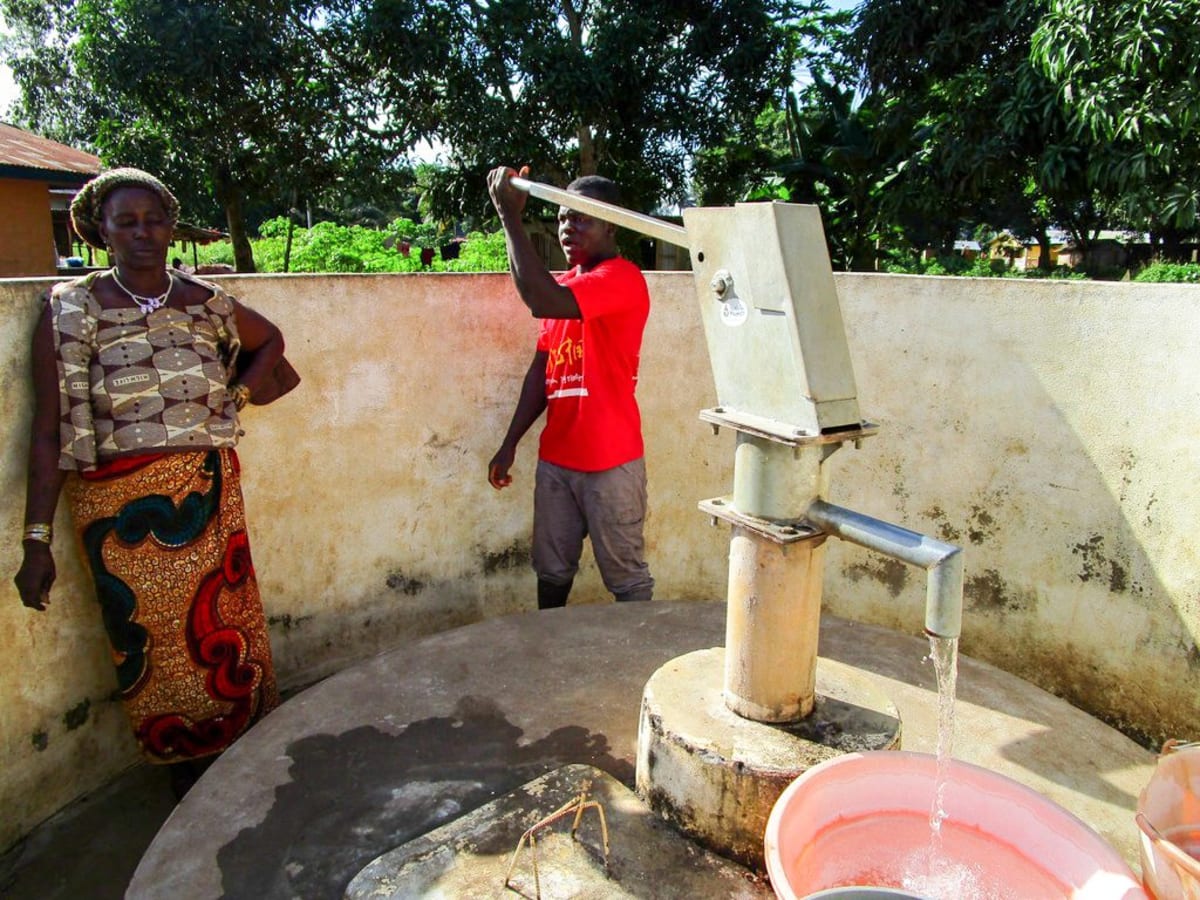This project is a part of our shared program with Mariatu’s Hope of Sierra Leone. Our team is pleased to directly share the below report (edited for clarity, as needed).
Welcome to the Community
The name Malokoh means "where things grow." The community is surrounded by swamps, and the people here rely on planting vegetables and petty trading. The earlier in the day that the acres of various vegetables ranging from okra, onions, pepper, cucumber and corn are watered, the better. The children and women get up at five in the morning and head out to the swamp to water their plots. They usually spend two hours in the morning and three hours in the evening tending the plants. It is tedious and time-consuming, but it puts food on the table.
The ashes from burnt leaves are sprinkled on vegetables every morning, along with fertilizer that is bought at the local market. The people who cannot afford to buy fertilizer combine with someone who can, and then the debtor's harvest will be sold to the person who lent the fertilizer for a price below market value. During the rainy season, the swamp is used for planting rice, the staple food in Sierra Leone.
In most communities, there are mosques at every corner but they are only busy during the month of Ramadan. Waking up early and getting home late from the swamp has prevented a lot of people from praying their five daily prayers.
Water Situation
Malokoh Community is so excited about this project. They have two protected wells in this busy area, located on either side of a dangerous throughway. We have been keeping an eye on these wells over the last few years, and the water user committee has been calling us to keep us informed. We noticed that during the driest months of every year from March through August, one of the pumps entirely stops yielding water. Calls from the community increased because of the dangerous position this put the people in, especially the children. Without water in that well, those seeking to fill their jerrycans have to cross the busy road and walk for quite a ways. And when both side of the road rely on one well, lines grow long and the well gets overused.
Cars race by, and it is particularly dangerous when the nearby ferry docks and departs. It is not uncommon for a road-crosser to be hit. And it's not uncommon that because of this unfortunate situation, women and children resort to taking water from more convenient, contaminated sources on their own side of the road.
Sanitation Situation
Most homes in Malokoh Community have a pit latrine. It was encouraging to see that most of these are in good condition, with some pits even being covered between every use. We believe conditions are this good because of the local hospital; many of the nurses live among these people. If not living there, there always seems to be a nurse out in the community center lecturing about proper hygiene and sanitation practices and how important they are for good health.
Plans: Hygiene and Sanitation Training
There will be hygiene and sanitation training sessions offered for three days in a row.
Not many hand-washing stations were observed here. After our visit, the hygiene and sanitation trainer decided it would be best to teach community members how to build a tippy tap (a hand-washing station built with a jerrycan, string, and sticks). They will use these tippy taps for hand-washing demonstrations, and will also teach about other tools like dish racks and the importance of properly penning in animals.
Plans: Well Rehabilitation
The well marked for this overhaul is dry from March to August and needs major work to supply adequate, clean water to the community year round. The pump will be removed, and a man will be lowered inside with a hand auger. This hand auger will allow the team to drill several meters deeper to hit a sufficient water column that will ensure the well supplies water throughout the drier seasons. As the team drills, casing will be installed, transforming this hand-dug well into a pseudo-borehole. PVC piping will connect this lower system directly to the pump, a construction that we know will also improve the quality of water.
Once this plan is implemented, everyone within the community will have access to safe drinking water in both quality and quantity, even through the dry months.

 Protected Dug Well
Protected Dug Well






















